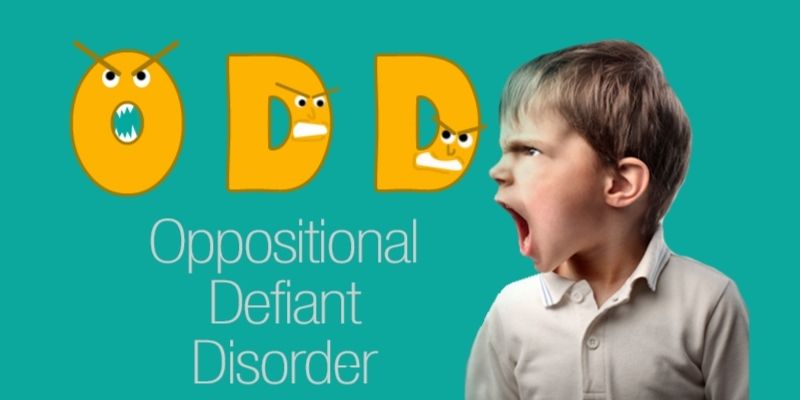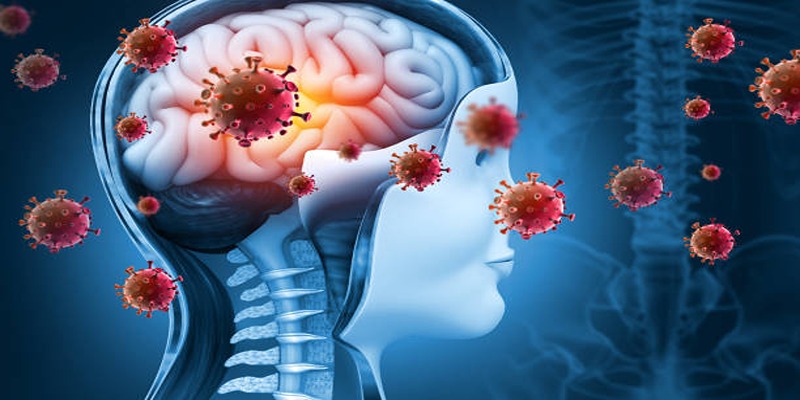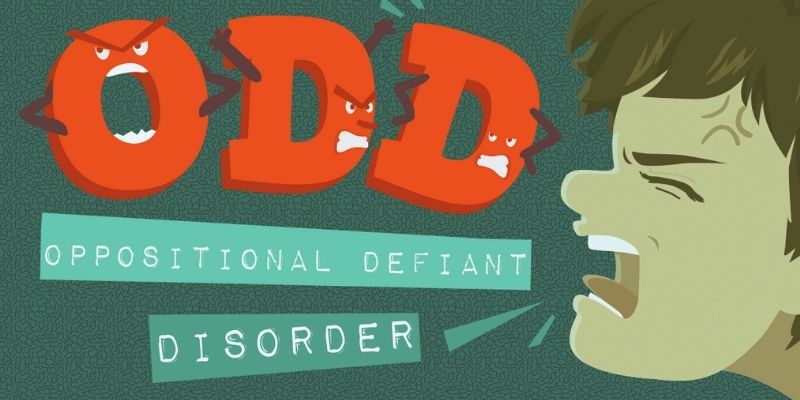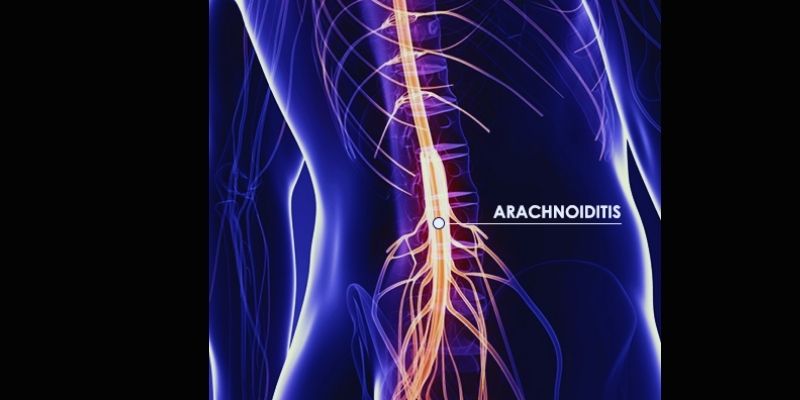Oppositional defiant disorder (ODD) can affect how a child behaves and responds emotionally. Parents may notice frequent anger, defiance, or arguments with adults. These behaviors often start before adolescence and can disrupt home and school life. Early signs include refusing to follow the rules, blaming others, and becoming easily irritated. When left unchecked, ODD may impact a child's social growth and emotional development.
Recognizing these signs helps parents take early action. Understanding the causes of oppositional behavior in children is key to managing the condition. Therapy and consistent parenting strategies can support recovery. With proper guidance, children with ODD can improve over time. Learning about ODD empowers families to respond effectively and help children lead healthier lives.

What Is Oppositional Defiant Disorder (ODD)?
One mental health disorder is oppositional defiant disorder. It influences teenagers' and children's conduct as well as emotionally. The condition produces a pattern of either furious or irritable mood. Youngsters could challenge authority figures or quarrel often. ODD goes beyond mere sporadic misbehavior. Over time, the conduct is consistent. Youngsters may harbor resentment or blame others for mistakes. Symptoms have to run at least six months. Usually, the conduct is shown before the early adolescent years. Male diagnosis rates are higher than those of female ones.
Children with ODD can find it difficult with friendships and schoolwork. For families, these symptoms can aggravate stress. Diagnosis calls for a mental health specialist. They assess behavior in several environments. One considers a child's house, school, and social life. Early intervention becomes easier when one understands the condition. Parents should not start to criticize themselves. With the correct support, ODD is treatable. Emotional control and behavior modification define treatment.
Signs and Symptoms to Look For
Children with ODD may react strongly emotionally. Often, the first warning is regular temper tantrums. They might object to following regulations or argue with adults. Parents can be worn out or powerless. Most of the time, children seem to be furious. Common also are irritability and want of retribution. They could act gratefully or purposefully irritate others. Usually, one starts to blame others for mistakes. Many times, they refuse to take their actions. They have limited patience and battle annoyance.
Little tasks can set up major emotional flashbacks. These actions impact family harmony as well as school performance. Children could also grow to be socially isolated. Teachers could report class disruptive behavior. These patterns have to last for six months or more. Early symptom recognition is crucial. Early on, seeking assistance can make a significant difference. Intervention can direct a youngster toward better conduct.
Causes and Risk Factors of ODD
There isn't one cause for ODD. Usually, it is the outcome of several elements. Family dynamics raise the risk. Differential punishment could cause uncertainty and disobedience. Children need structure if they are to feel safe and confident. Harsh punishment or parental strife might aggravate conduct. Trauma or neglect could also have a part. The temperamental of a child influences their emotional handling. Children who struggle with anger management could grow to have ODD. The risk could have something to do with genetics.
Another consideration is family mental health issues. Often accompanying ODD is ADHD or anxiety. Environmental stress—that which comes from poverty—may also be involved. Bad social skills and peer conflicts can aggravate the disorder. The lack of positive feedback for good behavior fuels the issue more. Many times, children act out to get control or attention. Managing symptoms depends on a solid, loving home. Developing a treatment plan depends on knowing the causes. The experience of ODD differs for every child.
Diagnosis and Evaluation Process
Diagnosing ODD calls for a mental health specialist. Initially looking for other problems, a pediatrician may be needed. The young person might also see a psychiatrist or psychologist. Diagnosis calls for several phases of interviews. Parents and teachers sometimes give behavior reports. The doctor looks for consistent trends in several settings. Questions might address behavior in the house and at school. Professionals employ behavior checklists and diagnostic instruments. They also go over the child's emotional past. First ruled out are medical issues.
Children are seen in several environments—the diagnostic guarantees whether the behavior satisfies clinical standards. The symptoms have to be often disturbing. They should run for six months or longer. One can confuse ODD with other conditions. Mood problems, anxiety, or ADHD can all appear the same. Accurate identification of ODD is made possible by a comprehensive assessment. The first step toward receiving treatment is diagnosis. It clarifies and guides families. Early assessment guarantees faster access to useful support.
Treatment Options for Children With ODD
ODD treatment mostly consists of behavioral therapy. Often, the first strategy is parent training. It guides parents in responding consistently and coolly. Learning emotional regulation helps children. Over time, therapy helps to lessen rebellious activities. Family therapy can help relationships and communication. Many youngsters benefit much from cognitive behavioral treatment. It guides the management of their emotions.
Furthermore, school support is included in treatment. Behavior plans let teachers steer development. If other problems arise, some children require medication. Anxiety or ADHD might compromise ODD management. At home, the constant structure is vital. Consequences and rewards should be just and unambiguous. Youngsters need routines to be comfortable. The advancement of treatment depends mostly on patience. Different children experience progress differently, and it takes time. ODD is not gone overnight. Better results follow from working with experts. The treatment provides instruments to help one develop better relationships and behavior.

Parenting Strategies That Help
Having ODD in a child can be taxing for a parent. Little daily adjustments can have a significant effect. Establishing well-defined guidelines gives kids organization. Consistent discipline combined with calm helps to lower disobedience. Better than punishment is positive reinforcement. One should admire even little attempts. Whenever at all possible, avoid power conflicts. Children who remain calm learn how to manage their stress. For chores, give brief, unambiguous directions. Divide large jobs into doable steps.
Visual timetables can support organization. Verify that the outcomes are reasonable and predictable. Youngsters respond best to consistent yet gentle direction. Groups for parent support provide ideas and encouragement. Ask for professional help without thinking twice. Family counseling could lower home tension. Caregiver consistency is crucial. Youngsters have to feel safe and encouraged. Parents should pause to refuel. Also important is looking after your health. Children with ODD can show better behavior and confidence using supportive parenting.
Conclusion:
Understanding ODD helps families take action early. The first step is recognizing signs of oppositional behavior in children. Expert guidance from mental health professionals can improve a child's emotional and behavioral health. Causes often include family stress, environmental factors, or genetics. Parents don't have to handle this challenge alone. With therapy and support, children can learn to manage their emotions. A structured home and consistent routines make a strong foundation. Patience and compassion are essential. With the right tools, children with ODD can grow and succeed.












